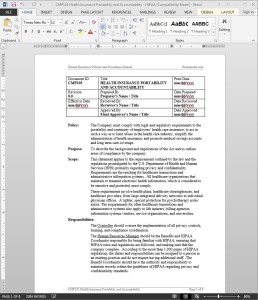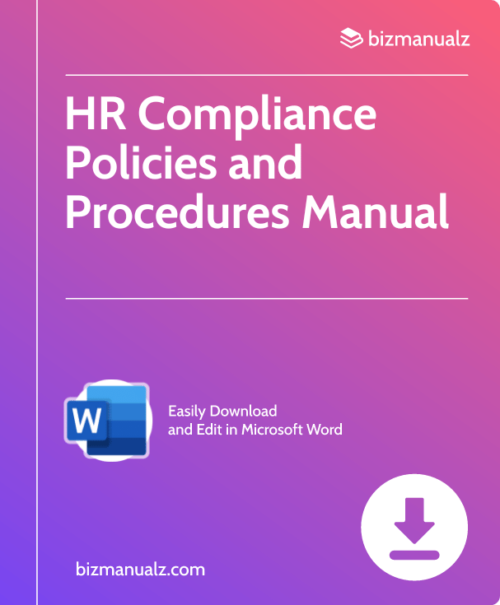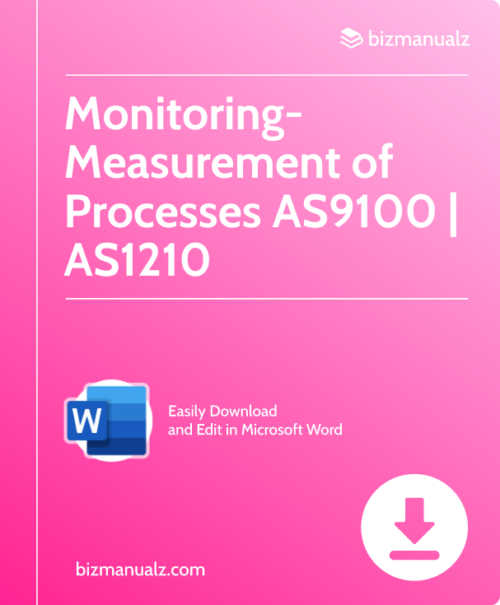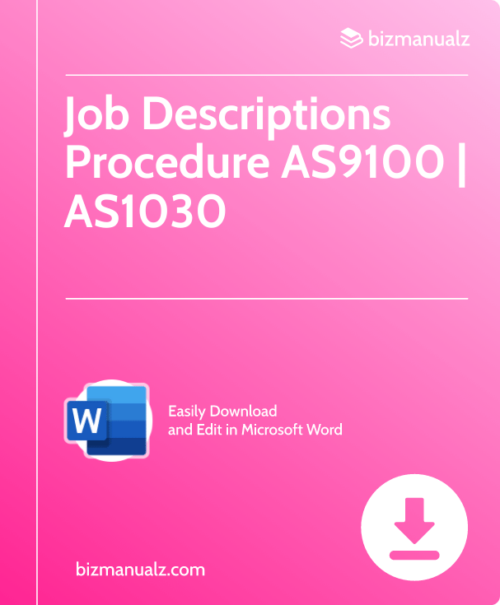HR Health Insurance Portability Accountability Procedure Word
The HR Health Insurance Portability Accountability Procedure Word is a comprehensive document that outlines the policies and procedures that organizations must follow to comply with the Health Insurance Portability and Accountability Act (HIPAA). This document is designed to help organizations protect the privacy and security of their employees’ health information.
The HR Health Insurance Portability Accountability Procedure Word includes detailed instructions on how to implement HIPAA policies and procedures, including how to train employees on HIPAA regulations, how to handle and report breaches of protected health information, and how to maintain compliance with HIPAA regulations. The document also includes templates for various HIPAA-related forms, such as authorization forms and notice of privacy practices.
By using the HR Health Insurance Portability Accountability Procedure Word, organizations can ensure that they are in compliance with HIPAA regulations and are protecting their employees’ health information. This can help to prevent costly fines and legal action, as well as protect the reputation of the organization.
The HR Health Insurance Portability Accountability Procedure Word is easy to use and can be customized to meet the specific needs of any organization. It is available for immediate download and can be used as a standalone document or as part of a larger compliance program.
Overall, the HR Health Insurance Portability Accountability Procedure Word is an essential tool for any organization that handles protected health information. By following the policies and procedures outlined in this document, organizations can ensure that they are in compliance with HIPAA regulations and are protecting the privacy and security of their employees’ health information.
HIPAA Policy
The HIPAA Policy (Health Insurance Portability Accountability) Procedure describes the background and implications of the Health Insurance Portability and Accountability Act (HIPAA) of 1996.
The Health Insurance Portability Accountability Procedure applies to the requirements outlined by the law and the Department of Health and Human Services (DHHS) regulations primarily regarding privacy and confidentiality. Requirements are far-reaching for healthcare transactions and administrative information systems. All healthcare organizations that maintain or transmit electronic health information, which is considered to be sensitive and protected, must comply. (8 pages, 2266 words)
These requirements involve health plans, healthcare clearinghouses, and healthcare providers, from large integrated delivery networks to individual physician offices. A tighter, special protection for psychotherapy notes exists. They also apply to life insurers, billing agencies, information systems vendors, service organizations, and universities.
All employees should use their best efforts to limit the non-consensual use and release of private health insurance and restrict the disclosure of health information to the minimum needed for the intended purpose. Access to health related records by researchers and others should be restricted to authorized personnel only. Patients should have the rights to access their medical records and to know who else has accessed them.
HIPAA policy Responsibilities:
The Controller should oversee the implementation of all privacy controls, training, and compliance coordination.
The Human Resources Manager should be the Benefits and HIPAA Policy Coordinator is responsible for being familiar with the HIPAA policy, ensuring that HIPAA rules and regulations are followed, and making sure that the company complies. According to the more than 1,000 pages of HIPAA regulations, the duties and responsibilities can be assigned to a person in an existing position and do not require having additional staff. The Benefit Coordinator should have the authority and responsibility to maintain records within the guidelines of HIPAA regarding privacy and confidentiality standards.
HIPAA policy Definitions:
Health Insurance Portability and Accountability Act of 1996 (HIPAA) – Also known as the Kennedy-Kassabaum Act, HIPAA amends the Internal Revenue Code of 1986 to limit waste, fraud, and abuse in health insurance and health care delivery and to simplify the administration of health insurance. Included in the law is a separate section intended to reduce the administrative costs of health care.
Need to Know – A security term used to define access requirements for sensitive or confidential information. The term implies that only those individuals that have a valid purpose or requirement should be allowed access to the information.
 HIPAA policy Activities
HIPAA policy Activities
- HIPAA policy Management
- HIPAA Medical Records Maintenance
- HIPAA Medical Records Access
- Additional Information Resources
HIPAA policy Forms






















Reviews
There are no reviews yet.